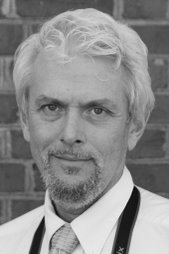Bob Spitz, the journalist and music business manager, has written a very good Beatles bio. Titled after the Liverpool performance artists, the book lays to rest a number of pernicious Beatles myths, including the circumstances under which Peter Fonda said to John Lennon, "I know what it's like to be dead."
That spooky little phrase, one of the many bits of verbal flotsam Lennon so often wove into his lyrics, resurfaced in the brilliant cut "She Said She Said," the final song on side one of the Beatle's most progressive and startlingly fresh album, "Revolver." Beatlemaniacs my age can still get chills listening to it; it incorporates not only red hot musicianship and studio technique, but also, like a lot of the Beatles' mid-career work, elements of stream-of-consciousness, total command of lyrical imagery and a sweet, spiky, iconoclastic approach to the three minute pop song milieu in which the lads worked - and which they struggled to transcend - for so many years.
But enough of my facile criticism, here's how the Spitz book handles the Fonda-Lennon connection: The story I had always heard was that John and Peter were ripped on LSD-25 at a California party when Fonda started following him around, apparently trying to impress him with some sort of cosmic understanding by repeatedly saying, "I know what it's like to be dead."
But Spitz claims what really happened was that Fonda was relating to someone else the story of how, as a child, he'd accidentally shot himself while playing with a handgun.
"My heart stopped three times," said Fonda, "so I know what it's like to be dead." As it happened, Lennon wandered by just then, overheard him, and thought it was a great line.
It is, and its use in "She Said She Said" shows a fine, Duchampesque appreciation for the value of found materials. Lennon wasn't the first singer-songwriter to use out-of- context phrases in his work, but he did it as well or better than anyone in those storied days of explosive musical evolution.
It's also nice to know Peter Fonda, even with a head full of acid, wasn't quite the babbling twit the original story made him out to be.
But the thing that really impressed - and depressed - me was how the group was forcibly retired, by the antics of raving, obnoxious fans, from doing live performances during their final years before the 1970 breakup. By the time they'd finished their second world tour, giving up live shows with all their hysteria and physical risk was not even a hard decision to make. As George Harrison got on the plane after finishing the Beatles' penultimate live gig (the last for many years, until their rooftop performance at Apple headquarters included in the end of the Let it Be movie), he told biographers he thought to himself, "I'm not a Beatle anymore." And George Harrison felt pretty good about it.
Reaction to the non-touring Beatles was predictable and distressingly unfair. When the band retreated into the studio to create some of the greatest rock albums ever, some fans, many of them the same ones who'd screamed so loud the Beatles' couldn't hear themselves play on stage, started muttering about being abandoned. "They're getting to be just like Elvis," one angry superfan was quoted saying.
There's probably more truth to that particular complaint than was intended. Elvis, like the Beatles and Bob Dylan, simply got sick to death of the adulation, the goofy expectations, the dangerous hysteria and the firm belief among some fans that buying an album or a concert ticket gave them license to invade the private lives of their heroes.
It's true: fans who live and die for their idols engage in a level of transference and identity projection which can make a whole civilization sick.
That's exactly what happened when Lennon, in a rambling interview with a pop journalist who was also an old friend, made the infamous comparison between John, Paul, George, Ringo and Jesus. What he said was that Christianity seemed pretty much shot in England. He then mused aloud over who would last longer, Jesus or the Beatles. Proving his point, when the interview was first published, no one in England cared.
But few months later, when the Bible-thumpers of America read the out-of-context quotes, they went bananas ... and missed the point. Lennon never said he approved of a rock band usurping the popularity of the Prince of Peace.
He did strongly imply that some folks' bedrock values were highly questionable. In the weeks and months subsequent to the American publication of the quote, Lennon had to suck a ton of eggs to get the furor to die down. Yet, forty years later, I have to wonder if maybe the boy didn't speak powerful truth. Consider:
A recent survey indicates more Americans can name all five members of TV's "Simpsons" cartoon family than can name the five freedoms protected by the First Amendment to the U.S. Constitution (religion, speech, press, assembly and the right to petition for redress of grievance).
Then, last month, the publication of a dozen irreverent cartoons in a Danish newspaper got folks so fired up, there were embassies attacked and rioters killed.
One finds oneself speculating that Lennon, wherever he is, probably isn't laughing, but he sure as hell is vindicated.

No comments:
Post a Comment